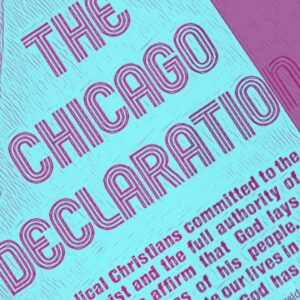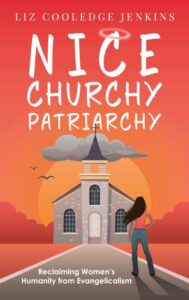 I visibly wince as my young daughter runs to me holding yet another piece of trash clutched in her hands. “Sweetheart, we’ve talked about this. It’s not safe to touch other people’s litter.” Her face gets a familiar set look of determination, “Mommy, there is a little stream right over there. What if this gross trash fell in it? It could hurt the animals.” She gives a curt little nod indicating that her argument is perfectly valid. I sigh, take the trash to the nearby receptacle, sanitize both our hands, and make a mental note to search for child size gardening gloves to bring to public places.
I visibly wince as my young daughter runs to me holding yet another piece of trash clutched in her hands. “Sweetheart, we’ve talked about this. It’s not safe to touch other people’s litter.” Her face gets a familiar set look of determination, “Mommy, there is a little stream right over there. What if this gross trash fell in it? It could hurt the animals.” She gives a curt little nod indicating that her argument is perfectly valid. I sigh, take the trash to the nearby receptacle, sanitize both our hands, and make a mental note to search for child size gardening gloves to bring to public places.
I love her heart for what is right, her desire to ensure safety for creation and others, her unflagging confidence in her ability to create change. But equipping her, both materially and emotionally, for her mission to save the world is a challenge as her mom. How do I nurture her heart for justice while also encouraging her to care for her own safety and well-being?
This question came to the forefront after she returned home from school informing me that her best friend was bitten by another child on the playground. She continued, “Don’t worry, Mommy, I went right up to that boy and told him that was not okay.” My fearless girl, marching up to childhood aggression at age 4. My heart swelled with a strange mixture of pride and utter terror, clearly emotions I should become used to as a parent, and she looked up at me for a reaction. Her eyes shone with expectation as I hugged her tight and said, “That was very brave, but maybe next time you should get a teacher to help.” She brightly informed me that her friend had scurried off for the teacher while she stayed back, because, “I needed him to know that it is not okay to hurt friends.” I reassured her that she was correct, but also cautioned against toe-to-toe confrontation with kids who are angry. I found myself silently praying, How do I shape this bold heart? Help me to guide her to use this passion for justice well. I’m a little lost.
An answer to this prayer appeared not long after, when my daughter skipped up to me asking what I was working on as I typed. “This is a paper on one of Mama Mary’s prayers,” I replied, “Want me to read you what the Bible tells us?” And thus began her first lesson on the Magnificat in Luke 1:
And Mary said: “My soul magnifies the Lord, and my spirit rejoices in God, my Savior…He has cast down the mighty from their thrones, and exalted the lowly. He has filled the hungry with good things, but the rich he has sent empty away.”
As a graduate student of theology, many of my papers focus on topics that might bore my children in detail, but which offer interesting insights in the broad strokes. After I explained the meaning of “cast down,” my sweet girl asked why God was throwing people off their thrones. I explained how God does not like rulers who are unfair. She grinned and nodded sagely, confident in her God’s dedication to what was fair. “I like that prayer, but it was a little scary, too,” she noted.
“Yeah, sometimes good prayers are like that,” I responded. “Mary was a brave, wise woman. She wanted to help make the world fair.”
I knew that sharing this insight into Mary’s song for justice would strike deeply in my daughter’s tender heart. And as she soaked in this image of a strong, prayerful, bold Mary, I realized my answer for how to shape my girl’s fearless heart was right in front of me. I would do so with the women of Scripture, with the stories of women who fought to make the world a better, more just, holy, peaceable place. I began my research, finding like-minded moms, of sons and daughters alike, who desired children’s Bibles that highlighted stories of social action in Scripture, and which represented the many races of men and women who followed God. My seminary offered a variety of classes on women in Scripture and church history. These gave me ideas as well as resources on lesser-taught, female-centric tales in the Bible.
In our home we study the traditionally popular biblical women like Esther, Ruth, and Mary. But we have also added the beautiful stories of Hagar, the first female theologian who names God; Miriam and Deborah, leaders of their people; and the sisters Mahlah, Tirzah, Hoglah, Noah, and Milcah, whose unwavering faith motivated them to advocate for more just laws. And that only covers the Old Testament. Scripture provides rich examples of strong women who bravely led, changed laws, and shaped history; women I pray my daughters grow to emulate. So while my protective heart may wince when my girl fearlessly forges ahead to change the world, I also trust in whose footsteps she is following, and more importantly, who guides and guards those steps.
For parents, like me, raising bold women of justice, I recommend checking out these resources:
- The Book of Belonging by Mariko Clark and Rachel Eleanor
- Know Your Mothers by Cara Quinn
- Feminist Prayers for my Daughter by Shannon K Evans
- The Womanist Midrash by Wilda C. Gafney
 Alli Bobzien is a full-time mom, nap-time writer, and graduate student of Theology at Fuller Seminary. When she isn’t playing outdoors with her two spunky daughters, she writes about spirituality, theology, family, and nature. You can find more of her work at allibobzien.com, through her monthly newsletter (The Pondering Heart), or on Instagram @bobz.alli.
Alli Bobzien is a full-time mom, nap-time writer, and graduate student of Theology at Fuller Seminary. When she isn’t playing outdoors with her two spunky daughters, she writes about spirituality, theology, family, and nature. You can find more of her work at allibobzien.com, through her monthly newsletter (The Pondering Heart), or on Instagram @bobz.alli.


